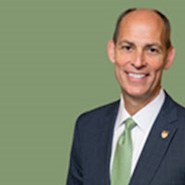
By Mona Savino & Thomas Smith, III
Situation
A member of ASCE worked for a government contractor. After several years of employment, he was approached by a federal employee with a request to approve a questionable invoice for consulting services. This federal employee had supervised the member's work on many projects. As the member later testified, out of misplaced loyalty to the federal employee he approved the invoice, which was to another consulting firm in the amount of $7,200. Unbeknownst to the member, this false invoice was part of an ongoing kickback scheme between the federal employee and employees of two other consulting firms. In return for payments by the contracting firms to the federal employee, the firms would receive government contracts. They would then submit false invoices to the government to recover the funds paid to the federal employee. After approving the invoice, the member realized he had exercised poor judgment in agreeing to do so and refused to approve additional false invoices despite being pressured to do so by the federal employee.
The Federal Bureau of Investigation approached the member as part of an investigation of this scheme, and the member immediately confirmed his involvement and offered to cooperate. As a result of the member's cooperation, the government successfully prosecuted the others involved. The member pleaded guilty to one count of conspiracy to defraud the United States. He was placed on probation, fined $10,000, and barred from working on government projects for the length of his probation.
A second member of ASCE was investigated by the Committee on Professional Conduct (CPC) for his involvement in this same matter. This member also was recruited by the federal employee, but his participation in the scheme extended over several years. This member made repeated payments to the federal employee, submitted false invoices, and also recruited another contractor to participate. He was sentenced to 24 months in prison.
Question
Did the engineers violate ASCE's Code of Ethics by falsifying invoices? According to the guidelines to practice set forth in the code in category (a) of canon 5, "Engineers shall not give, solicit, or receive, either directly or indirectly, any political contribution, gratuity, or unlawful consideration in order to secure work, exclusive of securing salaried positions through employment agencies." According to canon 6 of the code, "Engineers shall act in such a manner as to uphold and enhance the honor, integrity, and dignity of the engineering profession."
Discussion
The CPC concluded that the first engineer violated both canon 6 and the guidelines to practice in category (a) of canon 5 and forwarded the case to the Executive Committee of the Board of Direction. The CPC recommended that this engineer be suspended from the Society for one year and that an account of the incident, including the member's name, appear in a Society publication. The Executive Committee accepted the CPC's recommendation.
The second member resigned from the Society before the CPC had completed its work. The Board of Direction accepted the committee's recommendation that the resignation be accepted, with prejudice toward readmission to the Society, and that notice of the resignation, with the member's name, appear in an official Society publication.
Through its Task Committee on Global Principles for Professional Conduct, ASCE is currently working with other engineering societies worldwide to develop principles for professional conduct to help reduce fraud, bribery, and corruption within the engineering and construction industry. The task committee has developed draft guidelines to further clarify responsibilities under ASCE's Code of Ethics. Please visit http://apps.asce.org/inside/global/ for more information about this important initiative.
© ASCE, ASCE News, September, 2005



